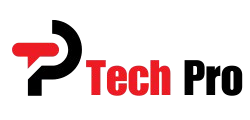Functional programming has become a critical paradigm in software development, offering unique advantages like immutability, higher-order functions, and declarative coding styles. If you’re preparing for a functional programming interview, understanding the concepts and nuances of this paradigm is crucial. This article will guide you through the key topics, provide tips, and answer frequently asked questions to help you ace your next interview.
What is Functional Programming?
Functional programming is a programming paradigm that treats computation as the evaluation of mathematical functions. It avoids changing state and mutable data, focusing on immutability and declarative constructs.
Key features of functional programming include:
- Immutability: Data does not change after it is created.
- First-Class Functions: Functions can be passed as arguments, returned as results, or assigned to variables.
- Pure Functions: Functions produce the same output for the same input without side effects.
- Recursion: Iterative processes are often expressed through recursive functions.
- Also Read: Civic Engine Build A Comprehensive Guide to Performance and Customization
Why is Functional Programming Important in Interviews?
Many companies use functional programming languages like Haskell, Scala, and Elixir, or apply functional programming principles in hybrid languages like JavaScript and Python. Demonstrating proficiency in this paradigm shows your ability to write robust, scalable, and maintainable code.
During a functional programming interview, you might be tested on:
- Writing pure functions.
- Handling immutable data structures.
- Implementing higher-order functions.
- Solving problems using recursion instead of loops.
- Using functional programming libraries or frameworks.
Key Concepts to Master for a Functional Programming Interview
1. Immutability
In functional programming, once data is created, it cannot be changed. Instead of modifying data, new data structures are created. This reduces bugs caused by unexpected state changes.
Example:
// Immutable array transformation
const numbers = [1, 2, 3];
const squared = numbers.map(n => n * n); // [1, 4, 9]
2. Pure Functions
Pure functions ensure predictability by not depending on or modifying external state.
Example:
# Pure function
def add(a, b):
return a + b
3. Higher-Order Functions
Higher-order functions take other functions as arguments or return them as results. They are foundational in functional programming.
Example:
// Higher-order function
function applyOperation(arr, operation) {
return arr.map(operation);
}
const result = applyOperation([1, 2, 3], x => x * 2); // [2, 4, 6]
4. Recursion
Functional programming favors recursion over iterative loops. Practice solving problems using recursion, such as calculating factorials or traversing data structures.
Example:
— Recursive factorial in Haskell
factorial 0 = 1
factorial n = n * factorial (n – 1)
5. Lazy Evaluation
Some functional languages evaluate expressions only when needed, optimizing performance and memory usage. Understanding lazy evaluation is critical for certain interview questions.
Tips to Prepare for a Functional Programming Interview
Understand Core Principles
Deeply understand immutability, pure functions, and higher-order functions. Interviewers often test these through coding exercises.
Practice with Functional Languages
Familiarize yourself with functional programming languages like Haskell, Scala, or functional features in Python and JavaScript.
Solve Coding Challenges
Platforms like LeetCode, HackerRank, and CodeWars offer functional programming-specific problems. Practice problems involving recursion, closures, and immutable data structures.
Learn Functional Libraries
If you’re interviewing for a role requiring JavaScript, explore libraries like Lodash or Ramda. For Python, understand functional modules like functools.
Common Functional Programming Interview Questions
- What is the difference between imperative and functional programming?
- Imperative programming focuses on how to achieve a result using step-by-step instructions, while functional programming emphasizes what to compute using expressions and declarations.
- Explain the concept of a pure function.
- A pure function is deterministic and has no side effects, meaning it depends only on its inputs and produces the same output for the same inputs.
- How does immutability improve code reliability?
- Immutability ensures that data cannot be altered after creation, reducing bugs caused by unintentional changes and making the code easier to debug.
- What is a monad, and why is it important in functional programming?
- A monad is a design pattern used to handle side effects, encapsulate computations, and chain operations in functional programming.
FAQs
Q1. What languages are commonly used for functional programming interviews?
Languages like Haskell, Scala, Elixir, and functional aspects of JavaScript, Python, and Java are commonly tested in interviews.
Q2. How can I demonstrate functional programming skills in hybrid languages?
Use functional constructs like map, filter, and reduce. Write pure functions, avoid mutable state, and apply recursion where applicable.
Q3. Are functional programming interviews harder than other paradigms?
Not necessarily. However, they require a strong understanding of mathematical concepts and problem-solving using recursion and immutability.
Q4. Can I use a hybrid approach during the interview?
While it depends on the company, many interviewers prefer you to stick to functional programming principles if that is the focus of the role.
Final Thoughts
Preparing for a functional programming interview requires a strong grasp of core concepts like immutability, pure functions, and recursion. By practicing coding problems, understanding the theoretical foundations, and gaining hands-on experience with functional languages, you can confidently showcase your skills.
Remember, the key to success lies in practice and clarity. Start solving functional programming challenges today, and you’ll be ready to tackle any interview question that comes your way.

